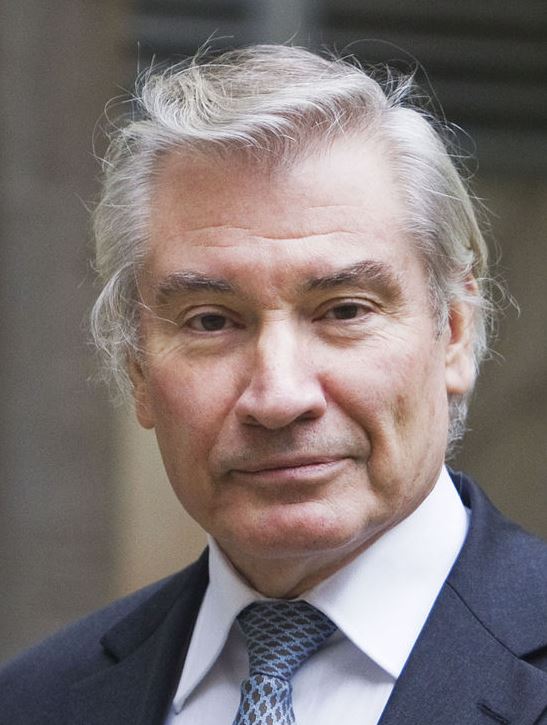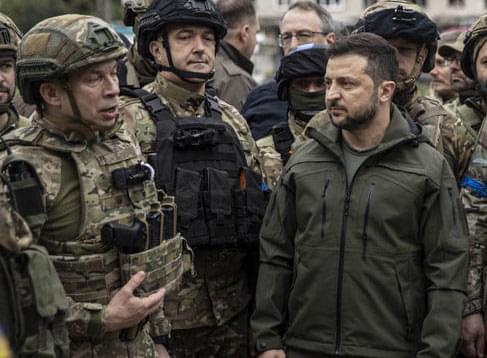2022 Guardian Award Winners Defend against World Existential risks and Country Existential Risks
For the first time since 2006, we have two joint recipients of the Lifeboat Foundation Guardian Award. This year’s recipients are Jerome C. Glenn and Volodymyr Zelenskyy, who are defending against world existential risks and country existential risks, respectively.
Jerome C. Glenn
Jerome C. Glenn cofounded and directs the Millennium Project, the leading global participatory think tank supported by international organizations, governments, corporations, and NGOs which produces the internationally recognized State of the Future reports. He was the Washington, DC representative for the United Nations University as executive director of the American Council for the UNU 1988–2007.
Jerry is working to protect the human race from extinction. For example, his The Millennium Project is calling for a new UN office to coordinate global research to prevent human extinction in an open letter to the UN Secretary-General, working with 200 leaders.
The Millennium Project also submitted a proposal to give us Friendly AI instead of having AI being developed by organizations like Google who dropped Don’t be evil from their slogan.
They proposed:
“AGI leaders together with governments and UN systems create agreements on the governance of initial conditions for the development of AGI in the interest of humanity. IEEE and ISO define the standards and metrics for AGI audits. Interpol is automatically notified whenever an AGI fails an audit, and freezes the AGI until it passes the audit.”
Jerry says:
“If we don’t get the initial conditions ‘right’ for Artificial General Intelligence (AGI), Artificial Super Intelligence (ASI) could evolve without our awareness and not to our benefit.”
Jerry has over 50 years of Futures Research experience working for governments, international organizations, and private industry in Science & Technology Policy, Environmental Security, Economics, Education, Defense, Space, Futures Research Methodology, International Telecommunications, and Decision Support Systems with the Committee for the Future, Hudson Institute, Future Options Room, and the Millennium Project. He has addressed or keynoted conferences for over 300 government departments, universities, NGOs, UN organizations, and/or corporations around the world on a variety of future-oriented topics.
Volodymyr Zelenskyy
Major wars are becoming less common due to large alliances that include countries with nuclear weapons. For example, in Europe, we have NATO with 30 member countries. Unfortunately for Ukraine, they were not part of NATO because they believed Russia when Russia said that them joining NATO would be a provocation.
The opposite was true, and by not joining NATO, Ukraine became a juicy target as were other recent Russian targets of Georgia, Chechnya, and Moldova. Those targets joined a long list of other targets last century including Japan, Poland, Finland, Estonia, Latvia, Lithuania, Romania, Germany, Hungary, and Czechoslovakia.
When Russia’s giant military invaded Ukraine with its quite small military, many predicted that it would fall in a matter of days. Accordingly, the U.S. offered to evacuate their president Volodymyr Zelenskyy after the U.S. had already run for it and had evacuated its embassy in Ukraine.
Volodymyr replied, “The fight is here; I need ammunition, not a ride.” Russian forces came within minutes of catching him, so the danger to him was real and which is why his many visits to the front since then don’t seem very high risk to him after his very perilous day on the first day on the invasion.
Besides the option of fleeing the country, Volodymyr had the option to flee to a bunker outside Kyiv but in Ukraine that the president could have gone to, which was secure and could withstand a long siege. However, he refused to leave Kyiv, instead taking to the streets despite nearby fighting to record video addresses to the Ukrainian people.
Courage runs in his family. Volodymyr is Jewish and his great-grandfather and his grandfather’s three brothers all fought against the Nazis but only his grandfather survived to return home.
Volodymyr’s courageous fight is helping to continue to move us towards a world with big alliances that will no longer allow the strong to dominate the weak. By stopping the Russian assault on his capital despite having no modern ships, planes, or tanks, Volodymyr bought time for a growing alliance to start to send him more and more support.
About 75 countries (almost 40% of all countries!) have provided support of some type to Ukraine so far, with East European countries such as Estonia, Latvia, Poland, and Lithuania providing the most support per GDP while the United States, with its massive economy and the world’s largest military, making a big difference in this world-wide effort to protect the weak from the strong.
Lifeboat predicts that the war in Ukraine will end with not only Ukraine getting all its territory back but its neighbor Moldova will do so as well. (Unfortunately, it seems Japan will not be getting any of its territory back from Russia in the foreseeable future.)
Finally, Finland and Sweden were awoken by the invasion of Ukraine and are now in the process of joining NATO. This means 15 million more people have chosen to no longer be threatened by larger, stronger neighbors. One more step towards a peaceful future!

